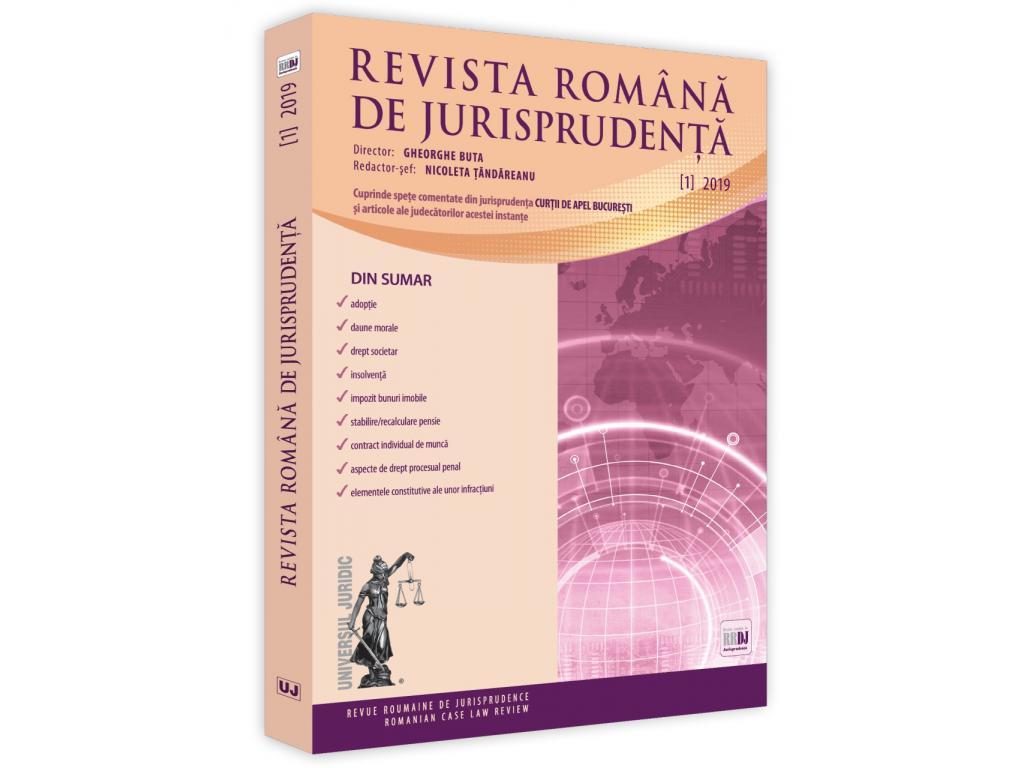Acknowledgment of foreign judgment. The minimum age difference between the adopted child and the adopter, a public order element of Romanian private international law
DREPT CIVIL ŞI DREPT PROCESUAL CIVIL
Abstract
The national regulation in the matter of adoption, respectively art. 460 paragraph (2) of the Civil Code: “The age difference – (…) (2) For grounded reasons, the guardianship court may approve the adoption even if the age difference between the adopted child and the adopter is less than 18 years, but not less than 16 years”, considered from the perspective of the European normative context previously designed by art. 9 of the European Convention on the Adoption of Children revised, adopted in Strasbourg on 27 November 2008, signed by Romania in Strasbourg on 4 March 2009 and which became effective on 1 September 2011, according to which: “(1) A child may be adopted only if the adopter has attained the minimum age prescribed by law for this purpose, this minimum age being neither less than 18 nor more than 30 years. There shall be an appropriate age difference between the adopter and the child, having regard to the best interests of the child, preferably a difference of at least 16 years. (2) The law may, however, permit the requirement as to the minimum age or the age difference to be waived in the best interests of the child: a) when the adopter is the spouse or registered partner of the child’s father or mother; or b) by reason of exceptional circumstances”, has the legal significance of the express inclusion (and therefore, of the acknowledgment with this legal status) of declaratory and regulatory nature, by the Romanian State, of this legal substantive condition of the adoption, in its public order of private international law (binding on the other Member States, by the legal institution of refusal of the acknowledgment of a foreign judgment to this end), with all its legal effects.








